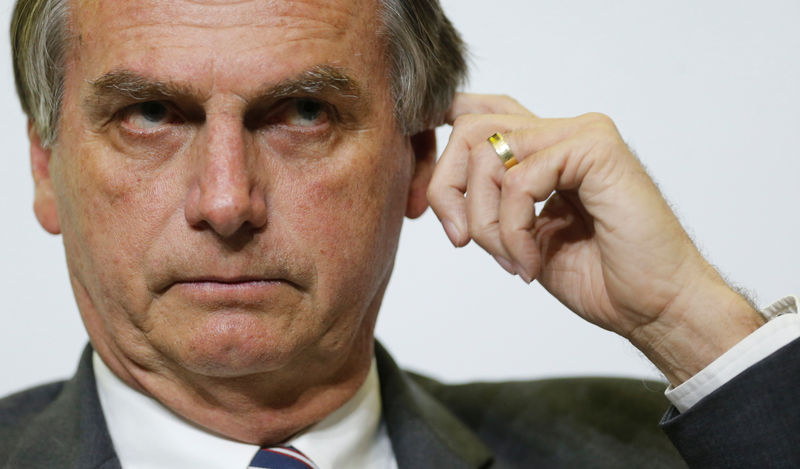As the shutdown deal between centrist Senate Democrats and Republicans drew fury from the Democratic base, primary candidates for U.S. Senate from Iowa to Maine were quick to call for Sen. Chuck Schumer to go.
In Maine, populist oysterman Graham Platner said Schumer had “failed.” In Iowa, two candidates in the crowded field of Democrats hoping to replace Republican Sen. Joni Ernst likewise called for Schumer’s resignation as Senate minority leader. A third candidate opposed the deal but was noticeably quieter on whether Schumer should bow out, however: Iowa state Rep. Josh Turek has drawn the backing of the Democratic Senatorial Campaign Committee — the establishment fundraising body aligned with Schumer — and the calls for Schumer to resign put him in an awkward spot.
Though Schumer publicly opposed the deal that passed in the Senate on Monday and the House of Representatives on Wednesday, many Democrats are blaming him for failing to corral the party members who crossed the aisle to vote with Republicans on a deal to end the longest government shutdown in American history.
The backlash in Iowa against the deal betrays a larger phenomenon playing out in House and Senate primaries across the country. Moderates and progressives alike are blasting the deal — but candidates without establishment support have been more likely to blame Schumer.
“I wish it was just tactics. I wish it was just strategy. I think it’s actually a difference in worldview.”
These factions have also offered strikingly different analyses of whether the dealmakers’ surrender was merely a tactical failure or a symptom of a deeper rot, which is the contention of Indivisible co-founder Ezra Levin, whose group is making opposition to Schumer a condition of its support in primaries next year.
“I wish it was just tactics. I wish it was just strategy. I think it’s actually a difference in worldview,” Levin said. “There is a surrender caucus that is made up of senators who do not believe this is a crisis, who do not think this is a unique threat to democracy, and who think we should just lay low, in James Carville’s words.”
A Widely Panned Deal
Because none of the Senate Democrats who voted for the deal are up for reelection next year, the vote will not directly fuel primary challenges against them.
That is not to say it won’t feature in primary races, however — perhaps most directly in New Hampshire. Stefany Shaheen, the daughter of shutdown dealmaker Sen. Jeanne Shaheen, felt compelled to express her disappointment with her mother’s decision as she runs for a seat in the House.
While the Shaheens said they had a genuine mother-daughter disagreement, it was also an acknowledgment of the reality that the party’s base seems overwhelmingly opposed to the shutdown deal.
Taking the cue, many House and Senate candidates have blasted the dealmakers for ending the shutdown without a commitment from Republicans to restore expiring Affordable Care Act premiums.
In Minnesota, two Senate candidates representing both the moderate and progressive wings of the party also slammed the deal.
But fractures have emerged between candidates on the question of whether the deal is a sign that Schumer should resign. Turek, the establishment-backed Senate primary candidate in Iowa, has been silent on Schumer while criticizing the deal. State Sen. Zach Wahls, one of his opponents, said Turek owed it to voters to more clearly articulate his stance.
“At the end of the day, we need a senator who works for Iowans, not for Chuck Schumer or Donald Trump or billionaires in big corporations,” Wahls told The Intercept on Wednesday. “I have not seen anything, and I think it would be terrific if he joined our call on Sen. Schumer to step down from his leadership role.”
In Maine, Platner said that Schumer had “failed in his job yet again.” Schumer’s preferred candidate in that race, Maine Democratic Gov. Janet Mills, dinged the deal but didn’t lash out at Schumer in her own social media post.
Schumer did not immediately respond to a request for comment.
Not everyone calling on Schumer to go is self-identified progressive. New Democrat Coalition member Rep. Glenn Ivey, D-Md., was one of the first calling for Schumer to go in March, when the senator led Democrats in capitulating to Republicans and voted to avert a government shutdown.
In a post on X, centrist Democratic Rep. Seth Moulton of Massachusetts cast the deal as an example of the party’s gerontocracy problem. Moulton, who is challenging incumbent Sen. Ed Markey for his Senate seat and trying to capitalize on the age of his older opponent, said the deal was “another example of why we need new leadership.”
Who Represents the Base?
While both Schumer and House Minority Leader Hakeem Jeffries said they did not support the deal, the way the shutdown ended seemed to crystallize progressive Democrats’ long-simmering frustration with their leadership.
“The clear capitulation was from the more moderate, establishment wing of the party,” said Mark Longabaugh, a Democratic strategist who worked on Bernie Sanders’s 2016 campaign. “Obviously, not everybody in the party agrees with them, from an establishment standpoint, but I think it’s pretty obvious who sold out the rest of the Democratic Party. I think in that regard, obviously the progressive wing of the party is where the energy is.”
Voters have historically had a short memory for government shutdowns. Whether the deal will fuel progressives’ campaigns next year remains unclear, and some centrists are spinning the deal as little more than a tactical blunder.
Third Way, for example, said that it merely showed some Senate Democrats lack the backbone and political instincts of centrist hero Bill Clinton.
“To paraphrase Bill Clinton, one of America’s most pugnacious Democratic centrists, we should have been ready to fight ‘until the last dog dies.’ We should not have surrendered until we received at least something tangible on lowering health care cost,” Third Way President Jon Cowan said in a statement.
Progressives are more likely to portray the vote as a sign that the party needs wholesale change, starting with its leadership. Usamah Andrabi of Justice Democrats, which supports progressive challengers to centrist Democrats, said the deal represented a “real indictment of corporate Democrats.”
“The left and the progressives have diagnosed this problem long before this cycle, and for years we have talked about how Chuck Schumer and Democratic leadership and corporate Democratic senators, many of whom voted for this deal, were always going to betray us when the going gets tough,” Andrabi said. “It’s why we need new leaders in primaries to replace many of these folks.”

 German (DE)
German (DE)  English (US)
English (US)  Spanish (ES)
Spanish (ES)  French (FR)
French (FR)  Hindi (IN)
Hindi (IN)  Italian (IT)
Italian (IT)  Portuguese (BR)
Portuguese (BR)  Russian (RU)
Russian (RU) 





:strip_icc()/i.s3.glbimg.com/v1/AUTH_59edd422c0c84a879bd37670ae4f538a/internal_photos/bs/2023/l/g/UvNZinRh2puy1SCdeg8w/cb1b14f2-970b-4f5c-a175-75a6c34ef729.jpg)










Comentários
Aproveite ao máximo as notícias fazendo login
Entrar Registro